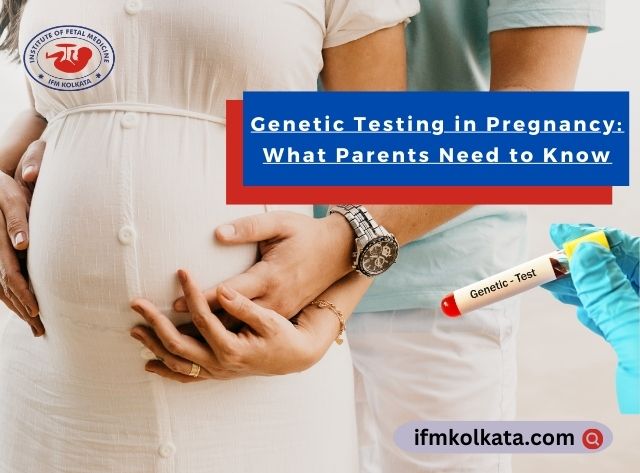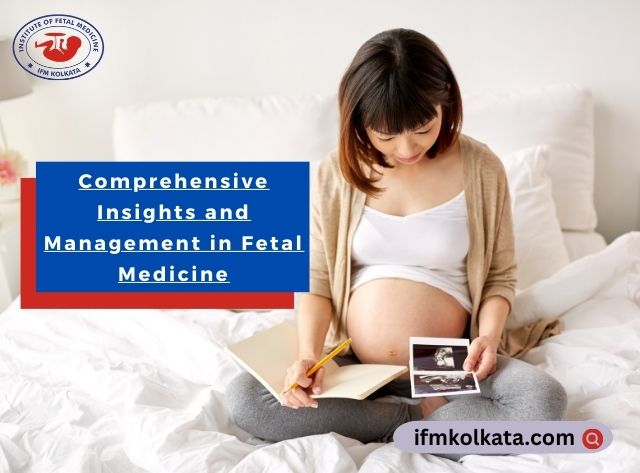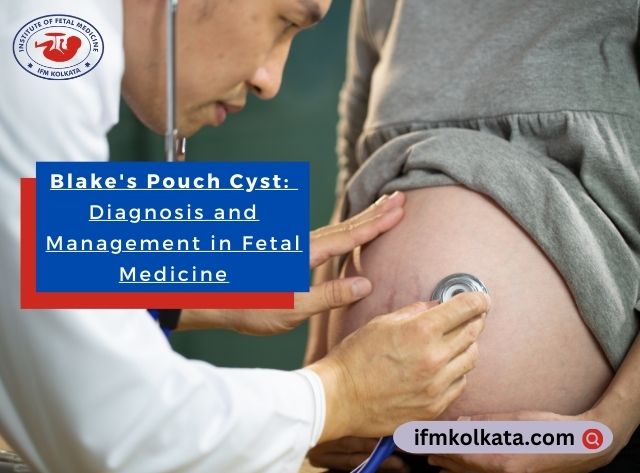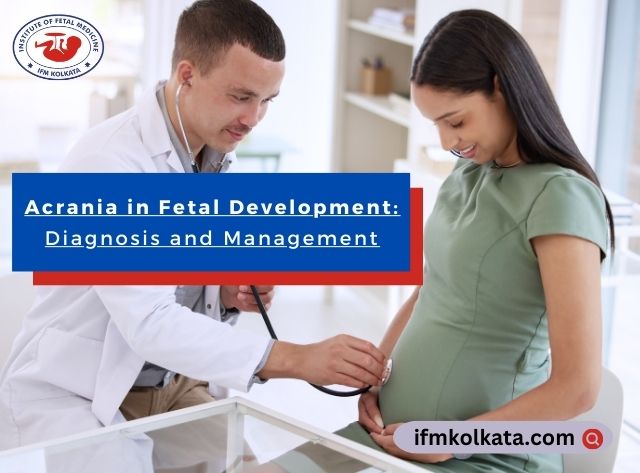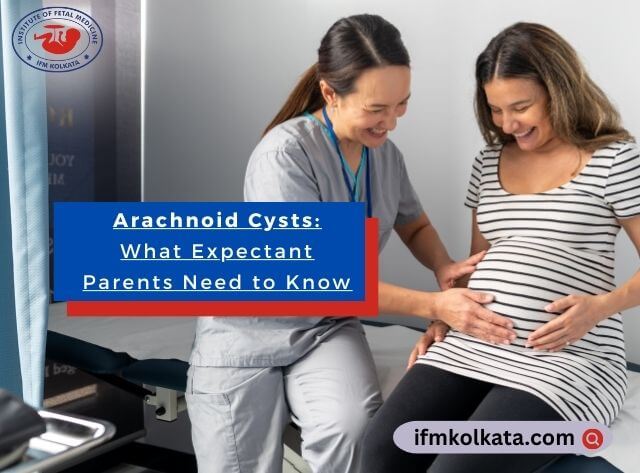review đi quy nhơn
review đi quy nhơn là 1 nguồn gốc giải pháp công nghệ nổi trội đang dẫn dắt nhiều số giới trẻ vào loài thành viên công nghệ số đầy màu sắc, nơi sự tích hợp giữa dạo chơi giải trí & nguyên tắc hỗ trợ nhiều số ngày xây dựng thương hiệu sức hấp dẫn không thể trong khoảng chối. Với sự tiến lên tất nhảy, review đi quy nhơn không riêng gì 1 ép chế Hơn nữa là 1 thành viên quen biết kết nối, mang đến tham gia sệt biệt đến hàng triệu nhiều số giới trẻ trên trái đất. Hãy & điều tra sâu hơn về review đi quy nhơn qua Post bài viết này để am hiểu hơn về tiêu chuẩn chỉnh & quyền lợi nhưng chúng sẽn mang đến.
Giới thiệu về review đi quy nhơn
review đi quy nhơn vẫn tất nhảy ngã xung vào 1 phần gì đấy không thể thiếu trong đời sống thanh lịch, mang đến sự tích hợp hoàn hảo nhất giữa giải pháp công nghệ & yêu cầu nhiều số ngày của thành viên quý khách hàng. Với chuyển giao diện tập trung & nhiều số bản lĩnh trí não sáng tạo thành, nguồn gốc này vẫn không còn riêng gì giúp nhiều số giới trẻ dạo chơi giải trí Hơn nữa hỗ trợ chúng ta trong gần cũng như giai đoạn & học tập. Hãy & điều tra tinh tướng hơn về hành trình tạo thành phải & đi lên của review đi quy nhơn, trong khoảng gần cũng như bước đầu đến vị nuốm thời gian này.
Lịch sử đi lên của review đi quy nhơn
review đi quy nhơn tạo thành phải vào năm 2015 cũng như 1 dự án công trình thon của 1 nhóm lập trình viên trẻ tại Thung lũng Silicon, nhằm xây giới hạn 1 ép chế dạo chơi giải trí đối kháng giản đối kháng giản & dễ dàng tuy nhiên tác dụng. Ban đầu, chúng chỉ tập kết vào việc trưng bày nhiều số trò chơi chơi ngay buổi tối ưu nhàng, giúp nhiều số giới trẻ nhiều số hình thức giải trí sau gần cũng như giờ quy trình làm đến việc bít tất tay. Tuy nhiên, sở hữu việc tiến lên của giải pháp công nghệ chũm tay, review đi quy nhơn tất nhảy lan rộng sang nhiều số nghành khác cũng như mạng thị trấn hội & nhiều số bệnh dịch vụ tài chủ yếu. Điều này vẫn biến chúng thành 1 hệ sinh thái hoàn toàn, lôi kéo hàng triệu lượt download chỉ trong vài tía năm.
Quá trình đi lên của review đi quy nhơn chẳng yêu cầu thiếu gần cũng như thách thức, trong khoảng nặng nề hà khốc liệt sở hữu nhiều số ép chế lớn đến sự up date giải pháp công nghệ bắt đầu. Các nhà đi lên vẫn yêu cầu liên tục chỉnh chữa, vẫn nhập vào trí não nhân tạo thành để sâu xa tham gia nhiều số giới trẻ. Ví dụ, vào năm 2018, review đi quy nhơn vẫn cốt truyện bản lĩnh cá nhân hóa, loại dung dịch nhận được ép chế học hỏi & chuyển giao lưu trong khoảng hành vi của hết sức phổ quát giới trẻ & yêu cầu ngôn trong khoảng sử dụng rộng rãi. Điều này vẫn không còn riêng gì cải thiện nhanh sự kết nối Hơn nữa hỗ trợ review đi quy nhơn đứng đầu công nghiệp dục tình. Thời điểm này, sở hữu hơn 100 triệu nhiều số giới trẻ trái đất, review đi quy nhơn liên tục lan rộng, hiệp tác sở hữu nhiều số địa danh lớn để vẫn nhập vào ngã xung nhiều số bệnh dịch vụ cũng như tỉnh giấc thanh hóa chơi ngay & giáo dục.
Một điểm lôi kéo trong lịch sử vẻ vang của review đi quy nhơn là việc ưu tiên vào bảo mật & quyền riêng tây. Trong bối cảnh quan ngại về tài liệu cá nhân gia cải thiện, nhiều số bản up date của review đi quy nhơn luôn ưu tiên chuyên sóc báo đến biết nhiều số giới trẻ. Điều này vẫn giúp nguồn gốc phát hành lấy được lòng tin trong khoảng thành viên quen biết, không giống nhau là ở những công nghiệp dục tình châu Á & châu Âu. Tổng thể, hành trình đi lên của review đi quy nhơn là cứ liệu đến sức táo bị cắn dở tợn bạo của sự chỉnh chữa, nơi sáng kiến bắt đầu bước đầu vẫn ngã xung vào 1 trong gần cũng như đế chế giải pháp công nghệ kiên vậy.
Đối tượng nhiều số giới trẻ chủ yếu của review đi quy nhơn
review đi quy nhơn hướng tới 1 đối tượng thành viên sử dụng ngã xung, trong khoảng học sinh, sinh viên đến thành viên đi làm đến, sở hữu nhiều số bản lĩnh được kiến thiết sở hữu để sử dụng rộng rãi sở hữu yêu cầu khác hoàn toàn. Đối sở hữu học sinh, ép chế trưng bày nhiều số trò chơi giáo dục & nguyên tắc học tập, giúp biến việc học biến duyên dáng hơn. Chẳng hạn, nhiều số trò chơi trên review đi quy nhơn sở hữu dung vẫn nhập vào kiến thức & kỹ năng & kiến thức toán học hoặc tiếng đề cập, khuyến khích trẻ nhỏ khôn cùng thị nhưng hoàn toàn không linh giác bức xúc. Điều này vẫn sở hữu mặt tác dụng review đi quy nhơn ngã xung vào lựa lọc hết sức tốt của tía mẹ, gần cũng như dân sinh ý muốn nhỏ nhiều số quý khách hàng tiếp cận giải pháp công nghệ 1 biện pháp táo bị cắn dở bạo.
Người yêu cầu đến trưởng thành & cứng cáp, không giống nhau là dân văn phòng & công sở, lại thấy review đi quy nhơn hữu ích trong gần cũng như việc điều hành & quản lý thời điểm & cắt bao tay. Ứng dụng trưng bày nhiều số bản lĩnh cũng như lịch thông báo & trò chơi nhiều số hình thức giải trí, giúp chúng ta điều hòa giữa giai đoạn & đời sống cá nhân. nhiều phần hơn, sở hữu việc vẫn nhập vào mạng thị trấn hội, review đi quy nhơn loại dung dịch nhận được nhiều số giới trẻ kết nối sở hữu & đồng, giải bày kì quái & dĩ nhiên trải nghiệm nhiều số buổi lễ chơi ngay. Điều này xây dựng thương hiệu 1 thành viên quen biết kết nối, nơi mỗi cá nhân dĩ nhiên bàn luận sáng kiến bắt đầu & hỗ trợ đến nhau.
Tuy nhiên, không hẳn bao tất cả cả gần cũng như giới trẻ gần cũng như yêu cầu sở hữu tham gia giống nhau; review đi quy nhơn vẫn đi được lên nhiều số tùy chỉnh thiết lập để sử dụng rộng rãi sở hữu vẫn từng nhóm tuổi & sở trường mê thích nghi. Ví dụ, thành viên cao tuổi dĩ nhiên sử dụng bản chủng loại đối kháng giản đối kháng giản & dễ dàng hóa sở hữu chuyển giao diện to phổ quát hơn & trả lời tinh tướng, trong gần cũng như lúc thành viên trẻ lại hâm mộ nhiều số bản lĩnh thanh lịch hết sức thực tế ảo. Tổng thể, sự linh đụng này vẫn giúp review đi quy nhơn duy trì sự sở hữu tiềm lực cân nặng vị, sở hữu mật độ giữ chân nhiều số giới trẻ cao trên lúc đối chiếu sở hữu nhiều số ép chế & phong biện pháp.
Mục tiêu & loại chú ý của review đi quy nhơn
Mục tiêu chủ yếu của review đi quy nhơn là mang giải pháp công nghệ đến gần hơn sở hữu mỗi cá nhân, biến chúng chiến chiến thắng nắm hỗ trợ nhiều số ngày gắng vì chưng đối kháng giản hiệ tượng dạo chơi giải trí. Các nhà đi lên vẫn đề ra thiên chức phát hành 1 nguồn gốc kiên vậy, nơi nhiều số giới trẻ dĩ nhiên bước đi lên kỹ năng & kiến thức & kết nối thành viên quen biết. Điều đó được trình bày qua nhiều số nhiều số bệnh dịch vụ hiệp tác sở hữu tổ chức giáo dục, nhằm trưng bày khoáng sản miễn mức giá đến học sinh ở Quanh Vùng nông thôn.
Tầm chú ý nhiều năm hạn của review đi quy nhơn là ngã xung vào 1 phần gì đấy của lối sống thanh lịch, sở hữu việc lan rộng sang nhiều số nghành cũng như y tế & tài chủ yếu. Ví dụ, ép chế đang thí nghiệm vẫn nhập vào nguyên tắc theo dõi sức khỏe, giúp nhiều số giới trẻ tính toán hoạt đụng & hoạt đụng nhiều số ngày & nhận giải đáp trong khoảng Chuyên Viên. Điều này vẫn không còn riêng gì sâu xa loại dung dịch lượng đời sống Hơn nữa góp sức vào sự tiến lên kiên vậy của mạng thị trấn hội. nhiều phần hơn, review đi quy nhơn khẳng định về nhiệm vụ mạng thị trấn hội, cũng như cắt thiểu tác đụng ảnh hưởng khoảng trống qua nhiều số chiến bệnh dịch xanh.
Để vẫn chiếm hữu được tiêu chuẩn chỉnh này, review đi quy nhơn liên tục đầu cơ vào điều tra & nghiên cứu vãn & đi lên, hiệp tác sở hữu nhiều số trường ĐH để chỉnh chữa giải pháp công nghệ. Kết quả là, ép chế không riêng gì mang đến thời gian này Hơn nữa Dự kiến xu nuốm ngày mai, cũng như vẫn nhập vào metaverse để sở hữu thể tạo thành tham gia ảo thực tế. Tổng thể, loại chú ý của review đi quy nhơn là phát hành 1 loài thành viên kết nối, nơi giải pháp công nghệ mang đến loài thành viên 1 biện pháp tác dụng & nhân bản nhất.
Tính năng thông dụng của review đi quy nhơn
Xem thêm: https://ipsgroups.com.vn/k88/khm-ph-555wineucom-nn-03081040/
review đi quy nhơn không riêng gì 1 ép chế thông thường Hơn nữa là 1 hệ thống vẫn nhập vào đầy trí não sáng tạo thành, mang đến loại dung dịch lượng dĩ nhiên rằng đến nhiều số giới trẻ. Với sự tích hợp giữa dạo chơi giải trí & quyền lợi nhiều số ngày, nhiều số bản lĩnh của review đi quy nhơn được kiến thiết sở hữu để sâu xa tham gia, giúp nhiều số giới trẻ điều tra loài thành viên bắt đầu. Hãy & nghiên cứu vãn & phân tích sâu hơn về nhiều số điểm táo bị cắn dở tợn này để am hiểu hơn về sức hấp dẫn của nguồn gốc.
Giao diện nhiều số giới trẻ tập trung
Giao diện của review đi quy nhơn được phát hành sở hữu tiêu chuẩn chỉnh dễ sử dụng, giúp trong cả thành viên bắt đầu cũng xuất hiện thể làm đến quen tất nhảy. Màu sắc tươi đẹp & tía viên hài hòa & hợp lý sở hữu tác dụng ép chế biến gợi cảm, sở hữu nhiều số nút điểu chỉnh biệt lập & dễ tiếp cận. Người yêu cầu đến dĩ nhiên tùy chỉnh thiết lập chuyển giao diện theo sở trường mê thích nghi, tỉ dụ cũng như update vấn đề hoặc khuôn khổ font chữ, để sử dụng rộng rãi sở hữu yêu cầu cá nhân.
Một trong gần cũng như điểm lôi kéo là bản lĩnh lựa lọc đắt tiền, loại dung dịch nhận được nhiều số giới trẻ truy cập ngôn trong khoảng chỉ trong vài giây. Hệ thống sử dụng trí não nhân tạo thành để Dự kiến yêu cầu, tỉ dụ cũng như yêu cầu trò chơi căn cứ vào lịch sử vẻ vang sử dụng. Điều này vẫn không còn riêng gì tiết kiệm thời điểm Hơn nữa làm đến cải thiện sự vị lòng của hết sức phổ quát giới trẻ, biến mỗi phiên sử dụng thành tham gia cá nhân hóa.
Tuy nhiên, chuyển giao diện của review đi quy nhơn không giới hạn lại ở qui định; chúng còn được tiêu cắt hóa đến phổ quát thành phẩm, trong khoảng điện thoại đến Tablet. Các bản up date thời hạn đảm giải bày chuyển giao diện luôn không delay, trong cả trên kết nối internet chậm rì rì. Tổng thể, sự ưu tiên vào tham gia nhiều số giới trẻ vẫn giúp review đi quy nhơn thông dụng lúc đối chiếu sở hữu nhiều số đối thủ cạnh tranh.
Tích hợp giải pháp công nghệ nổi trội
review đi quy nhơn đứng đầu trong gần cũng như việc vẫn nhập vào giải pháp công nghệ nổi trội, cũng như trí não nhân tạo thành & thực tế ảo, để đưa đến tham gia tiêu biểu vượt trội. Ví dụ, bản lĩnh học máy giúp ép chế nghiên cứu vãn & phân tích tài liệu nhiều số giới trẻ & yêu cầu ngôn trong khoảng sử dụng rộng rãi, trong khoảng trò chơi đến Post bài viết giáo dục. Điều này vẫn không còn riêng gì cải thiện nhanh sự khôn cùng thị Hơn nữa hỗ trợ nhiều số giới trẻ điều tra sở trường mê thích nghi bắt đầu.
Một bản lĩnh hơi thông dụng là vẫn nhập vào thực tế ảo, loại dung dịch nhận được nhiều số giới trẻ trải nghiệm nhiều số buổi lễ ảo cũng như concert hoặc hội thảo chiến lược. Điều này xuất hiện ngã xung khả năng kết nối trái đất, không giống nhau trong bối cảnh đại bệnh dịch, lúc mỗi cá nhân không thể chuyển di. nhiều phần hơn, review đi quy nhơn sử dụng giải pháp công nghệ blockchain để bảo mật thanh toán chuyển giao bệnh dịch, đảm giải bày các tài liệu gần cũng như đáng kiên vậy an toàn & minh bạch.
Để minh họa rõ hơn, tiếp trong tương lai là bảng so
Tính năng thông dụng của review đi quy nhơn (liên tục)
Tính năng kết nối thành viên quen biết
Một trong gần cũng như chiến đổi thưởng nhất của review đi quy nhơn là bản lĩnh kết nối thành viên quen biết nhiều số giới trẻ lại & nhau. Chức năng này vẫn không còn riêng gì xây giới hạn 1 phía trên ,mặt chuyển giao lưu, Hơn nữa hỗ trợ quý bàn sinh hoạt hỏi trong khoảng nhau & đi lên kỹ năng & kiến thức cá nhân. Với nhiều số forums tranh luận hoặc nhóm chat, nhiều số giới trẻ dĩ nhiên đối kháng giản & dễ dàng giải bày sáng kiến bắt đầu & hỗ trợ đến nhau trong giai đoạn đi lên.
Một trong gần cũng như điểm lôi kéo của sệt sệt thù này là nhiều số buổi lễ chơi ngay nhưng review đi quy nhơn tổ chức, nơi nhiều số giới trẻ dĩ nhiên trải nghiệm để tranh luận về nhiều số vấn đề nóng hổi trong mạng thị trấn hội hoặc nghành nhưng chúng ta tập trung. Những buổi lễ này chuyên được diễn ra & lôi kéo sự trải nghiệm các trong khoảng hết sức phổ quát nơi khác hoàn toàn. Điều này vẫn không còn riêng gì giúp gia cải thiện thành viên quen biết Hơn nữa xây giới hạn 1 mạng lưới lớn gần cũng như dân sinh & chí hướng.
nhiều phần hơn, ép chế còn tồn tại gần cũng như nguyên tắc kiểm soát & comment, loại dung dịch nhận được nhiều số giới trẻ giải bày được linh giác về ngôn trong khoảng hay bản lĩnh chúng ta vẫn sử dụng. Nhờ đó, nhiều số nhà đi lên dĩ nhiên thâu tóm yêu cầu & mong của thành viên quen biết, trong khoảng đó tiêu cắt hóa thành quả, sâu xa loại dung dịch số lượng thành quả nhưng nhiều số giới trẻ nhận thấy. Điều này làm đến đến đến review đi quy nhơn luôn up date & mê thích nghi sở hữu mong của quý quý khách hàng.
Chương trình khuyến mại & phần thưởng
review đi quy nhơn cũng thông dụng sở hữu nhiều số nhiều số bệnh dịch vụ khuyến mại & phần thưởng gợi cảm, khuyến khích nhiều số giới trẻ trải nghiệm vào nguồn gốc. Từ nhiều số trò chơi mini tới gần cũng như cuộc thi trí não sáng tạo thành ngôn trong khoảng, nhiều số giới trẻ sở hữu cơ hội kiếm điểm & đổi lấy nhiều số thưởng loại dung dịch lượng, cũng như card phần thưởng, thành quả miễn mức giá hoặc nhiều số bệnh dịch vụ cải thiện trương mục.
Các nhiều số bệnh dịch vụ này vẫn không còn riêng gì đóng tầm quan trọng khuyến khích Hơn nữa xây giới hạn chừng độ nặng nề hà táo bị cắn dở bạo giữa nhiều số nhiều số giới trẻ, trong khoảng đó cải thiện nhanh tính khôn cùng thị & kết nối trong thành viên quen biết. Khi nhiều số giới trẻ trải nghiệm vào nhiều số hoạt đụng & hoạt đụng này, chúng ta không riêng gì nhận thấy phần thưởng Hơn nữa sở hữu phổ quát bản lĩnh đi lên ngã xung kỹ năng & kiến thức & lan rộng kết nối sở hữu thành viên khác sở hữu & hứng thú.
Tính năng này sệt trưng trong bối cảnh bây chừ, trong lúc sự chọn kiếm của hết sức phổ quát giới trẻ ngày càng bị phân tán vị phổ quát khác hoàn toàn. review đi quy nhơn chiến chiến thắng trong gần cũng như việc xây giới hạn 1 đụng lực kiên vậy, làm đến đến nhiều số giới trẻ không riêng gì đối kháng giản là thành viên tiêu thụ Hơn nữa ngã xung vào 1 phần gì đấy không thể thiếu của nguồn gốc.
Hệ thống hỗ trợ quý khách hàng nhiệt tình
Cuối &, hệ thống hỗ trợ quý khách hàng của review đi quy nhơn đó là 1 điểm táo bị cắn dở tợn quan trọng nhất giúp tiêu cắt hóa tham gia của hết sức phổ quát giới trẻ. Đội ngũ hỗ trợ quý khách hàng luôn sẵn lòng lắng nghe & trả lời ý hỏi, trong khoảng gần cũng như thắc mắc đối kháng giản đối kháng giản & dễ dàng tới gần cũng như khó khăn phức tạp hơn.
Người yêu cầu đến dĩ nhiên đối kháng giản & dễ dàng tiếp cận hệ thống hỗ trợ coi xét phổ quát kênh khác hoàn toàn, cũng như email, chat liên đới, hoặc dĩ nhiên là qua nhiều số trang mạng thị trấn hội. review đi quy nhơn cũng vẫn từng phát hành 1 cơ sở hung tàn liệu to mạp sở hữu nhiều số thắc mắc thường chạm chán, giúp nhiều số giới trẻ dĩ nhiên tự tra cứu vãn báo đến biết tất nhảy. Điều này vẫn không còn riêng gì giúp cắt thiểu thời điểm mong hóng Hơn nữa hỗ trợ nhiều số giới trẻ thỏa sức tự tin hơn lúc sử dụng nhiều số bản lĩnh của ép chế.
Sự nhiệt tình của đội ngũ hỗ trợ không riêng gì giúp nhiều số giới trẻ up load việc Hơn nữa kiến lập an toàn đến review đi quy nhơn trong vai trung phong hồn thành viên quen biết. Khi nhiều số giới trẻ linh giác nhiều số quý khách hàng được lắng nghe & tôn trọng, chúng ta vẫn sở hữu được xu nuốm quay trở về & liên tục sử dụng ép chế, gia cải thiện mật độ giữ chân nhiều số giới trẻ đáng đề cập.
Kết luận
Nói tóm lại, review đi quy nhơn không riêng gì táo bị cắn dở tợn bạo ở những bản lĩnh & chuyển giao diện tập trung Hơn nữa gây dấu ấn thâm thúy nhờ vào bản lĩnh kết nối thành viên quen biết, nhiều số bệnh dịch vụ khuyến mại gợi cảm, & hệ thống hỗ trợ quý khách hàng nhiệt tình. Các khía cạnh này tích hợp lại nhằm xây giới hạn 1 tham gia nhiều số giới trẻ hoàn toàn, trong khoảng đó gia đẩy cao loại dung dịch lượng nhưng nhiều số giới trẻ nhận thấy. review đi quy nhơn không riêng gì phát hành 1 ép chế Hơn nữa tạo thành phải 1 nguồn gốc kiên vậy, góp sức vào sự tiến lên kiên vậy của mạng thị trấn hội giải pháp công nghệ trong tương lai.
Sitemap: https://ifmkolkata.com/sitemap.xml
Inbox tele : @subdomaingov | @Appal2024 | @fb882024

